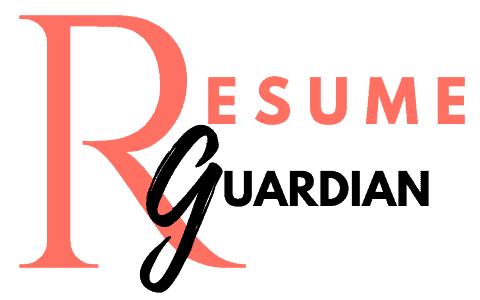
Anyone looking for a job in today’s job market would be shocked to realize that most job openings are in the hidden market.
The New York Department of Labor estimates says that at least two-thirds of the jobs are never publicly advertised and only exist in the hidden job market.
So how do you access these hidden job markets, and what are the alternate sources?
The top three alternate sources to access hidden job opportunities are Referrals, Networking, and Job Fairs. This allows you to access two-thirds of the hidden job market, which is not listed in popular online job portals.

The traditional way to find job openings is via online job portals like Indeed, Linkedin, Glassdoor, etc., and applying to the jobs listed online. But this only gives you access to one-third of the job market.
There are several approaches to accessing the hidden job market. Let’s explore these alternate approaches in a bit more detail in this article.
Referrals – Reach out to your contacts

When you apply for a job, getting your resume in front of the hiring manager through a referral can greatly increase your chances of getting the job offer.
Most companies have an internal referral process that allows employees to refer their contacts for the job opening. Employees are usually provided an internal company link, where they can upload their resume and refer you to that position.
But what’s the process involved? It’s simple; let’s go through the steps involved:
- Identify the job position you want to apply for.
- Use LinkedIn to identify your contacts who give a referral.
- Reach out to your contacts and ask them if they could refer you to the job – give them the job id and resume.
- The referrer posts your resume and applies for the job using internal referral links or by direct contact with the hiring manager.
- The hiring manager gets feedback from your referrer, and if your skills match what the hiring manager is looking for, they’ll call for an interview.
Applying for job via a referrer is not a guaranteed surefire way to get the job offer. But it does have some advantages.
Advantages of getting referred by an employee:
- Your resume gets noticed
- The main advantage of having a referrer is that you can be sure the hiring manager sees your resume.
- If you applied online via Linkedin or job portals, there’s no guarantee the hiring manager would see your resume.
- Skip a few rounds of interview
- Secondly, you could skip one or two rounds of pre-interview screening.
- But you’ll still have to go through the interview process, and you need to be well-prepared for the interview before you reach out to your contacts.
- Referrer’s help
- Thirdly, even if your interview skills are not great, you could get a leg up from the referrer if they tell the hiring manager how good you are as an employee.
Network for Job opportunities

The obvious question that you might have is, why network? It’s because of the fact that around 80% of the job openings are not posted in the open market. It’s hidden and gets filled through internal referrals. And to access these jobs, networking is quite important.
What are the different ways to network?
- Trade Fairs
- Networking through trade fairs etc, might not be an effective method because there’s a limit to how many events you can attend. But if you’re good at that, by all means, go for it.
- Maintain Relationships
- The most effective way to network is to maintain relationships with former colleagues, co-workers, and bosses.
- Contact them, talk to them, maybe have coffee and ask them how their job is going and if they know of any opportunities.
- Online and Social Networks
- In today’s world, Linkedin is a very powerful way to network.
- Contact managers higher up in the organization and message them about your skills and how you could be of help. This can uncover hidden job opportunities.
- This approach works based on probability. Most might not respond, but in case the hiring managers are looking for candidates at that moment, they could be interested in having a chat with you.
Attend Job Fairs

By attending a job fair, you can meet with potential employers face-to-face, and they can get to know you. This also benefits you by letting recruiters know you’re genuinely interested in the company.
Although job fairs are usually focused on specific industries, some may also be generalized. To make the most of a job fair, gather information about the companies that are participating, as well as any other opportunities that interest you.
Before you head to the event, ensure you have all the necessary documents to prepare for the interviews. Some companies may even arrange on-site interviews for candidates who meet their requirements.
Let’s go through a few preparatory steps you can take when attending job fairs.
Before the Job Fair Event
- Research the companies that will attend the fair.
- Prepare a list of companies you would approach.
- Do a background study on the companies, and gather just enough info for your conversations
- Bring 15-20 copies of your resume, pen, paper, and business card (if you have one).
- Dress professionally, and most importantly, wear a comfortable dress.
During the Job Fair Event
- Approach each table (you’d shortlisted) confidently and introduce yourself.
- The recruiter usually takes the lead, but be ready with an elevator pitch.
- As you speak, hand out your resume to the recruiter.
- Let the recruiter know that you’re interested in the company.
- Ask questions, ask for the next steps, and remember to ask for the business cards and email addresses of the persons you’ve talked to.
After the Job Fair Event
- Within approximately 1-2 days of the job fair event, send Thank you note to the recruiters you’d talked to.
- If some recruiters might have asked you to submit your resume online for that particular position, submit that promptly
Join Professional Groups & Associations

Joining professional associations can help you with networking and also helps in your job search effort. It can provide you with valuable advice and connections in the industry.
For example, the Association of Finance Professionals (AFP) is a well-rounded group of finance professionals. Some of the associations also provide training, certifications, and networking events.
The conferences and meetings hosted by associations can provide attendees with valuable information about the industry. They can also provide members with publications, journals, and newsletters that contain industry-specific insights.
Being up-to-date in your industry can have a lot of benefits when you go for job interviews. There are also associations that provide online job databases where association members can post resumes and apply for jobs.
Contact Headhunters & Recruiters
Headhunters are professionals companies hire to look for ideal candidates for specific positions.

Companies usually do this when they urgently want to fill a position. Headhunters use their vast network of connections to look for candidates and help companies to get suitable employees.
Headhunters usually have inside information about the job openings in a company, which falls under the “hidden job market”. So it’s to your advantage if you can work with a headhunter while job hunting.
Headhunters are paid by the company when the presented candidates are hired. So it’s a win-win situation for you (you get the job), the headhunter (who gets paid when you’re hired), as well as the company (who gets the right candidate filled up fast for the specific position).
So how do you find headhunters who are looking out for your profile to match the relevant job openings? Let’s explore:
How do headhunters find you and contact you?
- Make your online presence known – Create a Linkedin profile, and update it with relevant keywords.
- In the Career Interest section, update you’re Actively Applying – this lets the headhunters know you’re job hunting.
How can you contact Headhunters?
- Instead of letting headhunters find you, you could actively search and contact headhunters.
- Go to the company employees section and search for “talent.” This displays talent acquisition professionals for that company.
- Prepare a list and start contacting the headhunters.
Short-term Contracts

Short-term contracts and temporary or casual work has many benefits associated with them.
Though the benefits vary based on individual preferences, the most popular among these are the freedom to choose when to work and the projects that you’re working on.
This allows contractors to lead a lifestyle that’s beneficial to them and also provides a healthy work-life balance.
There are also other advantages of being a temporary or short-term contract worker:
- You can get paid overtime for the additional hours you put in.
- The hiring process is much faster; sometimes, you could start the next day.
- Some of the temp roles have the opportunity to become permanent. You get to learn the skills required for the job, and the employer gets to see your work results and efficiency while you’re on a temporary contract.






